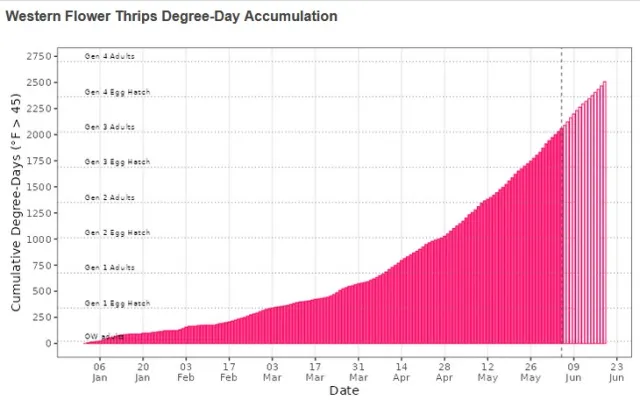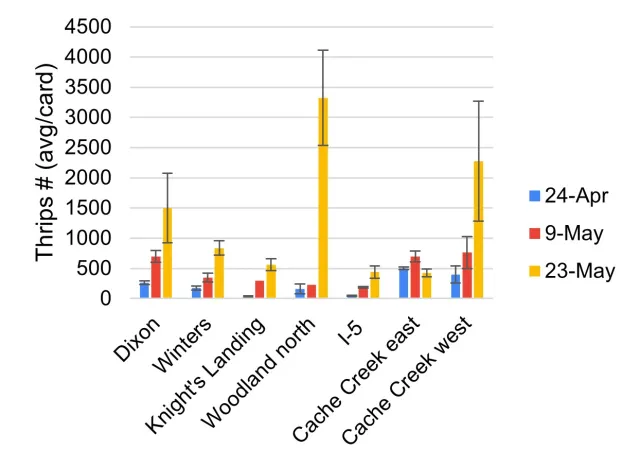General outlook & thrips population
Tomato planting is over, and with the excellent weather we have been having fields are progressing well.

Adult 3rd generation thrips are peaking, and over the next few weeks will be laying their eggs. Any thrips that acquired the virus as larvae by feeding on infected plants can spread it as adults. Again, the third and fourth generation pose the greatest risk as they are more likely to be carrying the virus than earlier generations, and the tomato plants are mostly still young enough that their yields may be impacted.

Growing degree day prediction for a field near Woodland, generated using the new easy-to-use interface https://qbelabgroup.shinyapps.io/WFT_dd/
Local monitoring
This continues to be a heavy thrips year. While temperatures greater than 100° F may slow them down a little, in general temperatures have been ideal for thrips development. In spite of these high thrips numbers, TSWV levels remain relatively low in most fields.

Thrips caught as part of a monitoring effort funded by the California Tomato Research Institute and the California Pepper Commission. Each bar represents the average number of thrips caught on yellow sticky cards placed for two weeks at the field edge. Cards were collected 4/24, 5/9, and 5/23. We will continue monitoring until early July.
